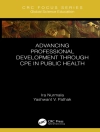One of the more common causes of school system failure is the absence of effective leadership. Ideally, school leaders are supposed to be the change agents and facilitators whose primary mission is to improve school culture and bring about the effective transformation that leads to a model Professional Learning Community (PLC). School leaders must focus on developing human capital by working collaboratively with teachers, students, and all who are involved within the system. Effective school leadership has been examined from a variety of perspectives, with the focus ranging from the principles of servant leadership to moral imperatives and distributed perspectives. The debate on what constitutes effective school leadership continues to be wide-ranging and complex. Today’s research scholarship will be the groundwork for how tomorrow’s schools develop a new breed of leadership. Upcoming leaders will face new, unforeseen challenges, so they must re-evaluate strategies and re-work standard processes, in order to promote sustainable development within their respective school systems. Tomorrow’s leaders will be expected to lead a diverse collective of students and teachers, to foster an enduring and empowering culture among students, teachers and other stakeholders committed to build a successful learning community.
Table des matières
New School Culture and Effectiveness in Schools; We Who Love Freedom Cannot Rest: Young People Transforming Their Worlds; Teachers’ Perspective towards the Effectiveness of a Program in One of the Schools in the Middle East; Student, Teacher, and Parental Perceptions of Elementary School Climate: A Progress Report on Thailand’s Quest for Educational Quality; Transformational Cultural Norms Supportive of Knowledge-Management; Coaching Principal Interns: How External Coaches Deepen Theory-Practice Connections in a Principal Preparation Program; Transformational Leadership in Science Education: A Quebec Perspective; List of Contributors.












